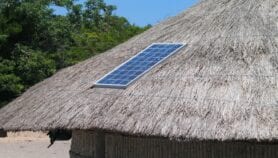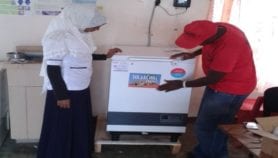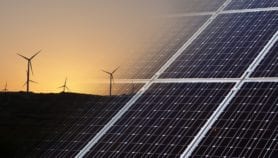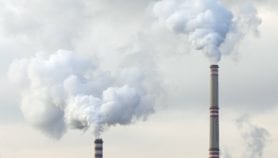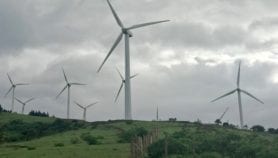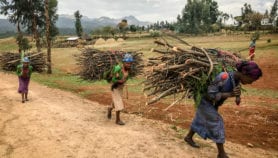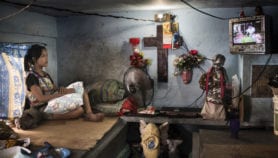Send to a friend
The details you provide on this page will not be used to send unsolicited email, and will not be sold to a 3rd party. See privacy policy.
[DAR-ES-SALAAM] Africa is quickly adapting to modern renewable energy sources, and could more than quadruple renewable energy use to 22 per cent e by 2030, up from five per cent in 2013, says a new report.
Dolf Gielen, the director of innovation and technology at the United Arab Emirates-based International Renewable Energy Agency (IRENA), which produced the report, says Africa is currently among the leading markets for modern renewable energy sources.
“Today Egypt, Ethiopia, Kenya, Morocco and South Africa are among the leading markets [of renewable energy], but many smaller countries also have ambitious targets,” notes Gielen, quoting IRENA’s Africa 2030: Roadmap to a renewable energy future report released last month (5 October).
“Today Egypt, Ethiopia, Kenya, Morocco and South Africa are among the leading markets [of renewable energy], but many smaller countries also have ambitious targets.”
Dolf Gielen, International Renewable Energy Agency (IRENA)
But Gielen adds that African countries’ limited access to adequate funding is holding back progress, and that through initiatives such as the Africa Clean Energy Corridor for Eastern and Southern Africa, IRENA is supporting the continent to raise capital and invest in renewable energy sources.
He adds: “Africa has witnessed rapid growth of renewable power generation in recent years. The capacity of the grids to connect remote, high quality renewable energy resources to the centres of demand should be a top priority to accelerate deployment further.”
The report states that Africa could generate nearly a quarter of its energy needs using indigenous, clean, renewable energy by 2030, adding that a comprehensive roadmap for Africa’s energy transition shows that a combination of modern renewable technology could realistically boost the continent’s share of green energy sources.
Adnan Z. Amin, IRENA director-general, says Africa holds some of the best renewable energy resources in the world such as biomass for cooking, geothermal, hydropower, solar and wind power.
Such a rich list of green energy sources and the precipitous drop of renewable energy technology costs, Amin explains, creates a massive opportunity for Africans to adapt to and experience low-carbon economic growth.
“Africa 2030 is built on a country-by-country assessment of supply, demand, renewable energy potential and technology prospects,” the report says.
The report says that while Africa heavily relies on traditional biomass as main sources of energy, green sources will help reduce carbon dioxide emissions by more than 310 megatonnes by 2030, allowing the continent to save between US$20 billion and US$30 billion annually. The savings could result from reduced health budgets for managing ailments associated with traditional biomass use.
Elikana Kalumanga, a climate change and renewable energy expert at the Institute of Resource Assessment, University of Dar-es-Salaam, Tanzania, agrees with IRENA’s latest report and highlights access to finance as a major challenge.
Kalumanga adds that the continued use of traditional biomass is disastrous because it only exacerbates global warming, noting that African countries such as Tanzania have the potential to shift to green energy sources.
“Solar energy is becoming popular in Tanzania, especially in the rural areas but as for hydro sources, I think it is not reliable anymore because of the effects of climate change,” Kalumanga explains.
This article has been produced by SciDev.Net's Sub-Saharan Africa desk
References
International Renewable Energy Agency (IRENA) Africa 2030: Roadmap to a renewable energy future (IRENA, 5 October 2015)
More on Energy
Multimedia
African innovator turns plastic waste into liquid fuel
Francis Kantavooro has produced a locally assembled reactor that turns plastic waste into16/12/19







